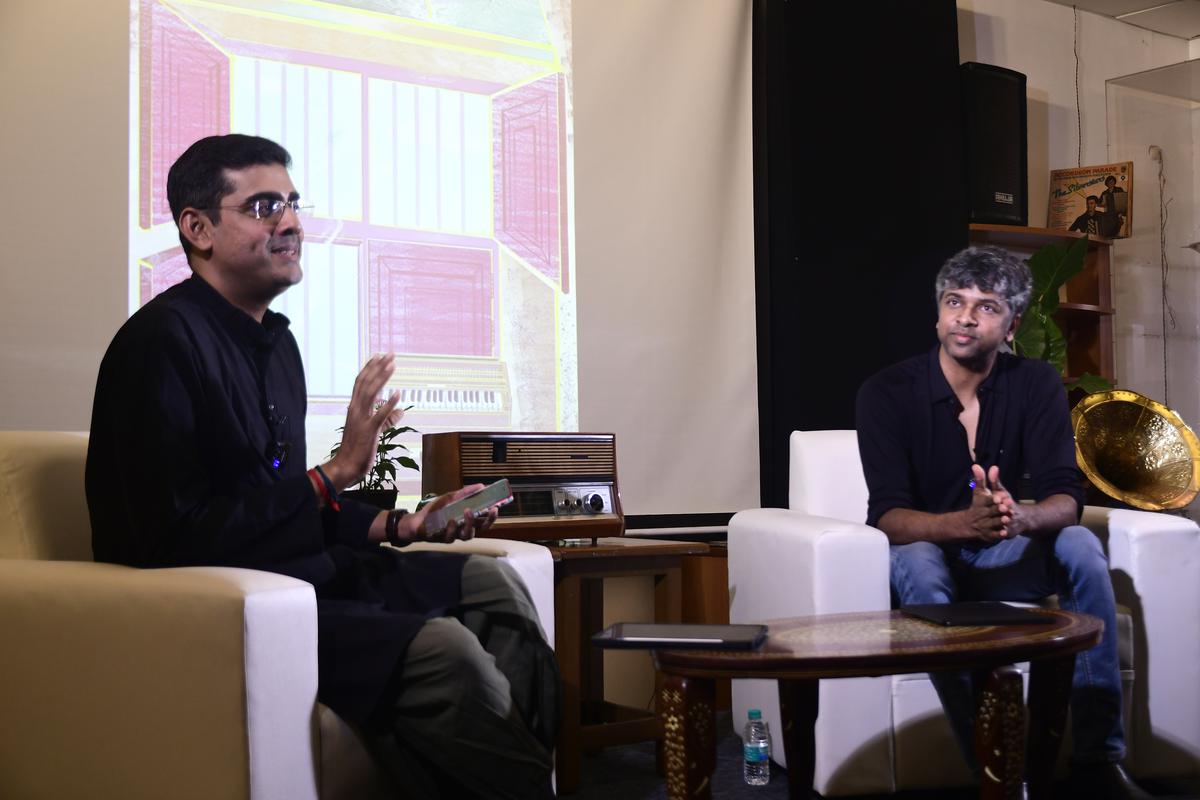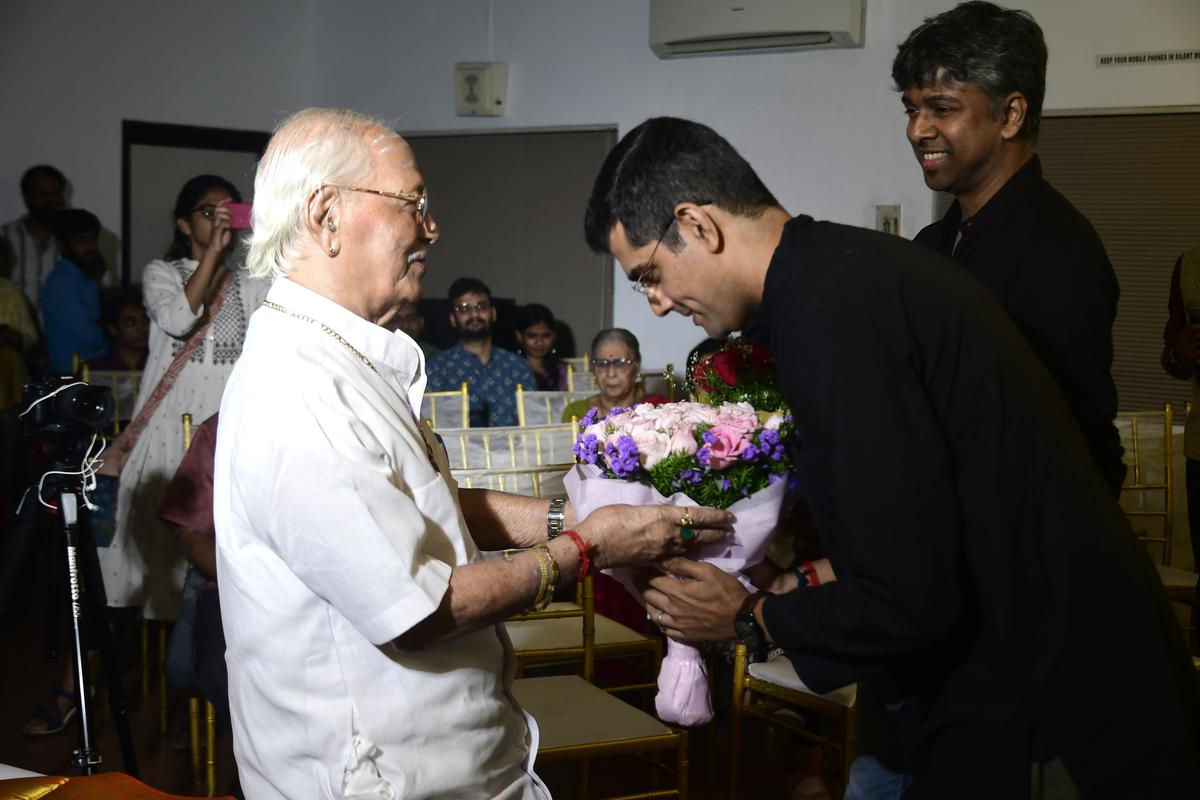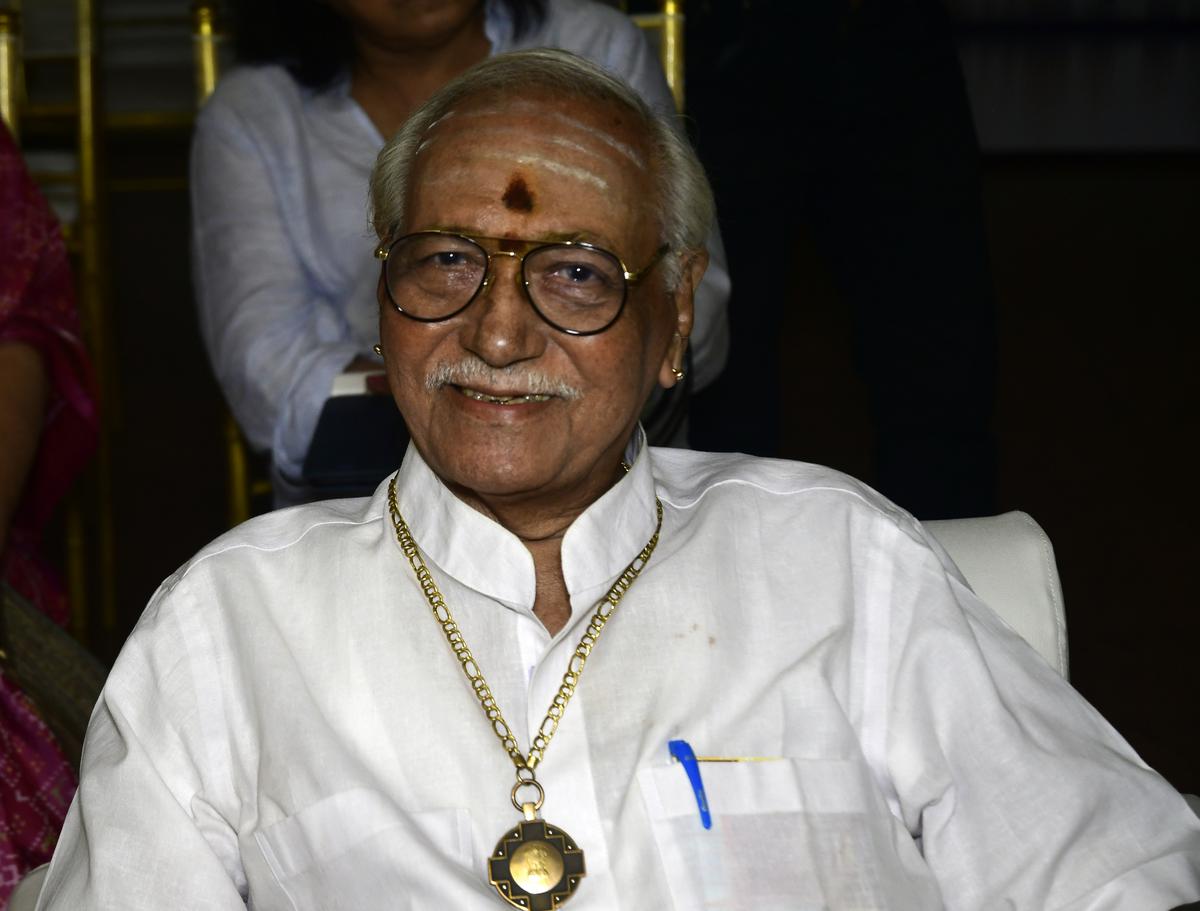Sikkil Gurucharan and Madhan Karky at The Hindu Friday Review interactive musical session held newspaper’s premises.
| Photo Credit: M. Srinath
A cozy gathering of music enthusiasts convened at The Hindu office premises to revel in an evening filled with the magic of music, composition, and lyrics. It was an intimate setting that underlined the beauty and significance of inclusivity in classical music and literature. It also sent out the message of how we need to appreciate art beyond labels and categories.
The Hindu Friday Review and Storiculture recently hosted The Hindu Fridays, a musical session featuring Carnatic vocalist Sikkil Gurucharan and lyricist Madhan Karky.
The event, proposed to be part of a series, has been conceived to make Carnatic music accessible by facilitating exciting cross-genre dialogue and placing the art form in new settings.

Gurucharan and Madhan shared insights into their artistic journeys, paving the way for a discussion on their collaborations, techniques, memorable works, and more.
Madhan mentioned he isn’t someone who frequently reads books, but those by his father, mother and brother are a part of his ‘curriculum’. He recalled chancing upon Carol Travis’s Anger: The Misunderstood Emotion while visiting the library at University of Queensland in Australia. That inspired him to write ‘Sinam kol maname.’
Gurucharan shared his experience of singing Madhan’s anger-themed song. During a performance, he sang two songs centered around anger. While ‘Sinam Adaiyaadhe’ by Dandapani Desikar discourages the display of anger, Madhan’s ‘Sinam kol maname’ (which he set to tune in raga Vasantha) emphasises the importance of expressing anger. He realised how interesting it is to combine contrasting ideas in a piece and chuckled that the audience was confused as to which song to applaud for.
Gurucharan mentioned singing four songs by Madhan on a specific theme during a concert, and how they came up with their latest album Maagamaaga Nee. Gurucharan had requested for a lyric that could be tuned in raga Yamuna Kalyani, which has two Madhyamams. “Charan suggested the raga for the song and mentioned that the notes Ma and Ga would be prominent in this composition. I decided to use the swaras in the lyric and wrote ‘Maaga Maaga Nee’,” explained Madhan, a PhD in Computer Science.
The song with AI generated visuals was played at the event.

Veteran musician T.V. Gopalakrishnan felicitating Sikkil Gurucharan and Madhan Karky.
| Photo Credit:
M. Srinath
Gurucharan and Madhan also spoke about their collaborations with pianist and education entrepreneur Anil Srinivasan and filmmaker Rajiv Menon. Gurucharan also sang some lines from songs that emerged out of these exchanges.
The duo came up with a surprise segment in which they asked the audience for a theme for a song to be written and composed impromptu. ‘Thirumanam’ (wedding) was suggested by a member of the audience, and connecting words were supplied by others present. Madhan spontaneously wrote the lyrics, and Gurucharan set it to tune and sang it too.
In the Q and A session, to a poser on the relationship between lyrics and music, Madhan said both are different infinities. “There is nothing like ‘my lyrics are better than the music’. In fact music is a bigger infinity.”

The multifaceted T.V. Gopalakrishnan
| Photo Credit:
M. Srinath
The event had also lined up Interesting activities for the audience such as writing about the first memory of listening to a song on a postcard and sending it to a loved and .
The event concluded with a short speech by the evening’s special guest, eminent vocalist and instrumentalist T.V. Gopalakrishnan. “Throughout my long musical journey I was always keep to reach out to youngsters and inculcate in them a love for the classical arts. I am amazed by the way Gurucharan and Madhan designed this interaction. It was unique, informative and thoroughly enjoyable. Tradition should evolve to be timeless. The classical arts should be presented in novel ways to preserve and popularise,” he said.